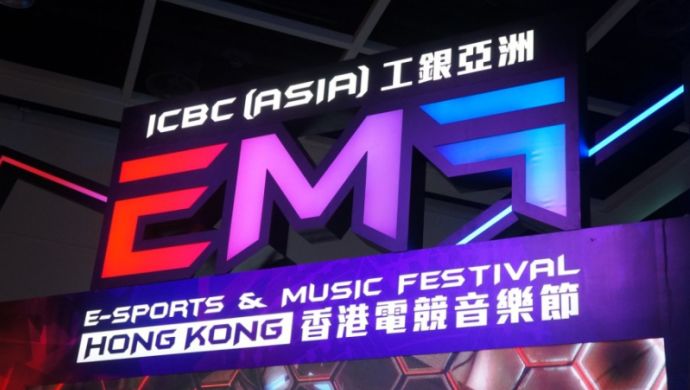Hosted by the Hong Kong Tourism Board, the festival saw 80,000 visitors this year, up from 60,000 in 2017

Hong Kong held its second E-Sports & Music Festival in late August, in a bid to boost the Chinese territory’s e-sports industry and tourism.
This year, the Hong Kong Tourism Board, the usual host of the festival, partnered with the Chamber of Hong Kong Computer Industry. They arranged for the E-Sports & Music Festival to take place on the same days as the Hong Kong Computer and Communications Festival in order to bring more visitors.
The E-Sports & Music Festival saw 80,000 visitors this year, up from 60,000 in 2017, the Hong Kong Tourism Board said.
The board promoted the event in China, Taiwan, South Korea and Southeast Asia, hoping foreign visitors would go sightseeing in Hong Kong after attending the festival.
Also Read: SGX leads US$44.4M Series C in Hong Kong’s online freights marketplace Freightos
Festival sees two new online games
The E-Sports & Music Festival involved two elements: the main e-sports competition and an experience area, which allowed visitors to try out devices and technologies used in e-sports.
This year’s competition saw three online games, with CS:GO and PlayerUnknown’s Battlegrounds added to last year’s League of Legends.
Hung Chung-hing, the event’s general manager with the product development department of the Hong Kong Tourism Board, in an interview with Business Next, pointed out each online game attracted people from different backgrounds.
League of Legends, for instance, is popular with western players, while PlayerUnknown’s Battlegrounds attracts players mostly from Southeast Asia, Taiwan, China and South Korea.
Competitions at the festival were also live streamed in three languages –English, Cantonese and Chinese – through online platforms that included Facebook, YouTube, games social community Twitch, Chinese streaming platform DouYu and Huya, and South Korea’s AfreecaTV.
Also Read: Hong Kong’s blockchain incubator SmartUp gets investment from DCapital, Soul Capital
In the experience area, companies set up booths and presented their products and services in e-sports.
CLP Power Hong Kong, for instance, showcased its power-efficient computing accessories, while mini personal computer and gaming graphics card manufacturer ZOTAC displayed a gaming backpack, the result of a collaboration between virtual reality brand HTC Vive, developed by HTC and Valve Corporation.
The festival also invited online celebrities from several countries to attend the event.
“Online celebrities know young people’s language better than we do,” said Hung.
Hong Kong’s e-sports development challenges
“E-sports in Hong Kong isn’t as popular as in Taiwan. Taiwan’s e-sports development is at least 10 years ahead of Hong Kong,” said Hung.
Hong Kong has a population of 7.4 million people and e-sports audiences in the Chinese territory are even smaller. This is not enough to build up a whole industry. Foreign audiences are needed for esports to become a real profit-making industry in the Chinese territory.
Before popularising Hong Kong’s e-sports in other countries, however, Hong Kong will first need to take care of its local e-sports ecosystem, said Ryan Chow, CEO of Cyber Games Arena (CGA), one of the first e-sports and entertainment companies in Hong Kong, in an interview with Business Next.
Chow took the League of Legends Champions Korea, the primary e-sports competition for League of Legends in South Korea, as an example.
Also Read: Hong Kong’s OneDegree raises US$12.7M in Series A funding round
It was a national event at first and broadcasted only in Korean. Now it has grown to be one of the strongest League of Legends competitions in the world and its contents have been licensed and broadcasted in English and Chinese-speaking channels abroad.
When it comes to the finance industry, Hong Kong has always had an international image in the world.
Most travelers are granted visa-free entry and quality infrastructure ensures speedy internet services. Thus, the Chinese territory already has a great base to launch its e-sports in the international arena, said Chow.
However, top e-sports players from Hong Kong are leaving for other markets. For instance, Tabe Wang, the coach of Taiwan’s League of Legendsteam Afro comes from Hong Kong.
“There are many great e-sports talents in Hong Kong. But, they aren’t willing to come back to Hong Kong after enjoying careers in other countries. It’s hard for us to cultivate the next generation of players,” said Chow.
Chow founded CGA to establishing a better ecosystem in Hong Kong’s e-sports industry. The company assists different companies to hold e-sports competitions and events, as well as provides an online platform where players can organise competitions by themselves.
—
The article Hong Kong Holds Its Second E-Sports Festival, Amid Challenges in Building up the Chinese Territory’s Fledgling Esports Industry first appeared on Business Next.
The post Hong Kong holds its second e-sports festival, amid challenges in building up the Chinese territory’s fledgling e-sports industry appeared first on e27.